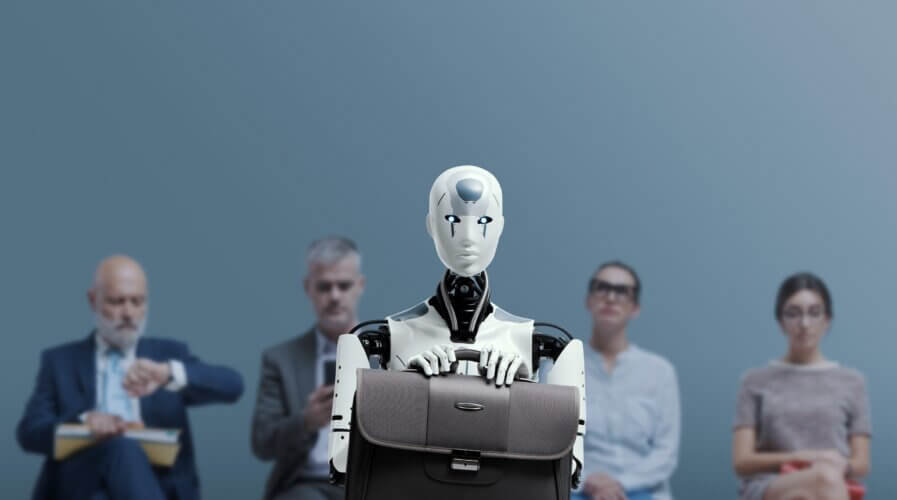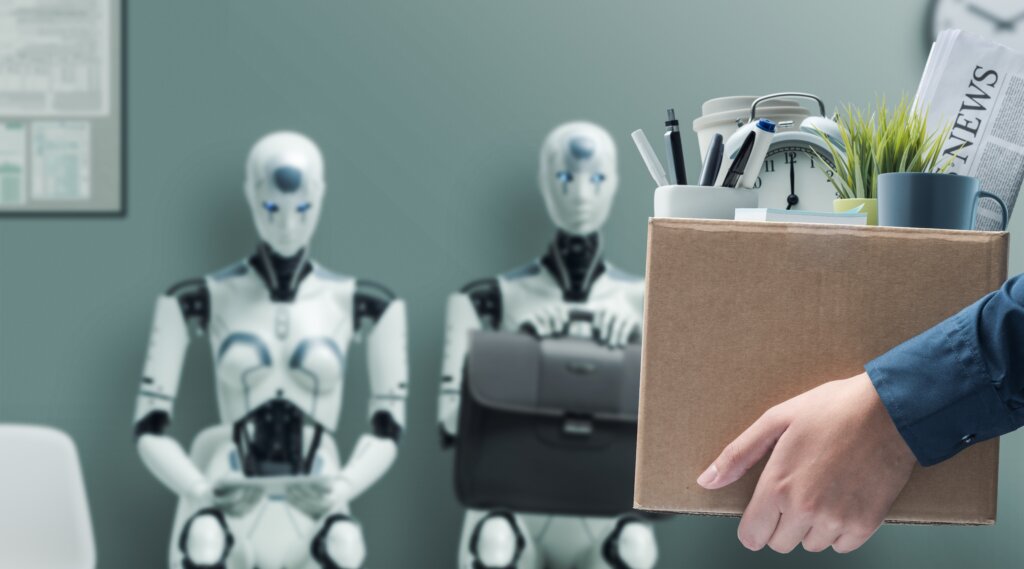
(Source – Shutterstock)
It’s happening: AI takes over jobs at IBM
- IBM CEO states company to use AI for non-customer facing jobs
- Up to 7,600 jobs in IBM could be replaced by AI
- Godfather of AI quits his job to warn about the growing dangers of developments in the technology
While science fiction films make society think that AI could eventually take over the world, many AI researchers have downplayed this. But, with AI slowly creeping into more use cases, devices and now tasks at work, can AI actually take over the world?
Believe it or not, AI has actually taken over the world, but not annihilating humans yet – let’s hope they never do. For many years, there has been talk of artificial intelligence (AI) taking over most jobs. In fact, tech enterprises continue advocating the message that AI will not replace employees but simply enhance their working capabilities. To a certain extent they were right, as AI did actually automate a lot of mundane and repetitive tasks, allowing employees to focus on more important roles.
However, the thing about AI is that it’s designed to learn and evolve. Enhancements and developments in the field have increased the capabilities of AI today. For example, generative AI is now a piece of technology that is slowly finding its way into almost every use case.
The question now is, with AI capable of doing a lot more work, what tasks are left for employees to focus on? Unfortunately, there aren’t really many tasks employees can do anymore. For example, in the human resource department, almost every role can be completed by AI.
Arvind Krishna, CEO of IBM, recently stated in an interview with Bloomberg that the tech giant will actually suspend or slow down hiring in back-office functions. To be precise, the non-customer facing roles like in human resources and such that make up about 26,000 workers in the company to which Krishna said he could “easily see 30% of that getting replaced by AI and automation over a five-year period.”
This is where it gets concerning. Replacing these roles with technology means about 7,800 jobs could be lost. An IBM spokesperson told Bloomberg that part of any reduction would include not replacing roles vacated by attrition. Krishna’s plan marks one of the largest workforce strategies announced in response to the rapidly advancing technology.

(Source – Shutterstock)
Will AI take over more jobs?
AI is not only capable of replacing non-customer roles but is also able to deal with customer-facing ones. In fact, the customer service industry is already seeing increased adoption of AI compared to any other field of work. Most airlines, telcos, and cloud-native industries are relying on AI to complete these jobs.
In healthcare, patients are already interacting with robots and AI that are capable of diagnosing them and providing medical advice. In the automotive industry, robotaxis for example are operating with minimal to zero human interference.
Tech Wire Asia recently wrote about five roles in IT that AI can help with. However, it is important to note that while AI can solve more workloads, it still lacks the emotional capabilities a human would have. And this does not just involve roles in IT but any role in an organization.
Concerns over AI ethics and regulations are now the main topic of discussion in most countries. For example, the US and China are already looking at ways it can enhance AI regulation without disrupting innovation in the technology while G7 nations are also expected to come up with a resolution on AI regulations at their summit next month.
For large enterprises though, the use of AI in the long run could be a cheaper alternative to having physical employees. Not only can they save on costs, but relying on AI would mean these companies are capable of having increased productivity.
IBM’s move to replace employees with AI in non-customer roles could just be the beginning. In the months or years to come, the technology will only get better, and more roles could eventually be replaced by AI.
The fact that Geoffrey Hilton, a man widely seen as the godfather of AI has quit his job to warn about the growing dangers of developments in the technology is a stark reality that the world is definitely headed towards a new era with AI.
READ MORE
- Strategies for Democratizing GenAI
- The criticality of endpoint management in cybersecurity and operations
- Ethical AI: The renewed importance of safeguarding data and customer privacy in Generative AI applications
- How Japan balances AI-driven opportunities with cybersecurity needs
- Deploying SASE: Benchmarking your approach


